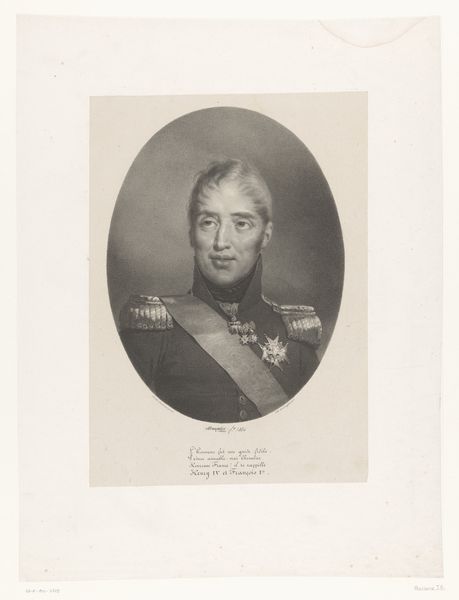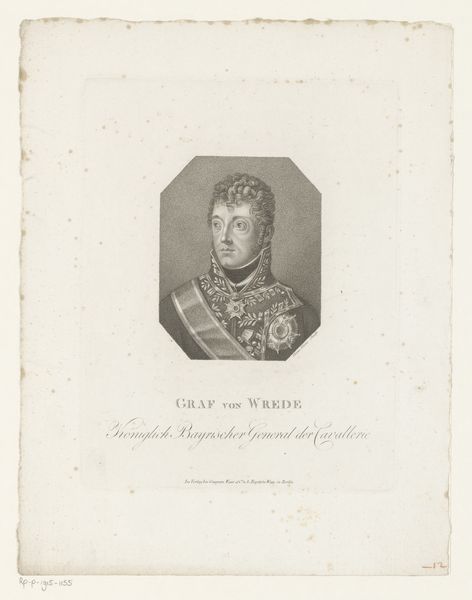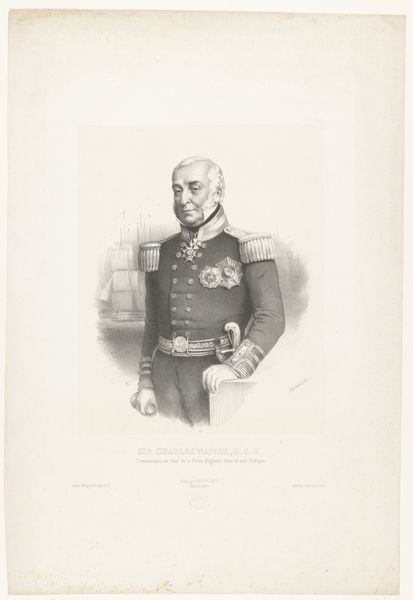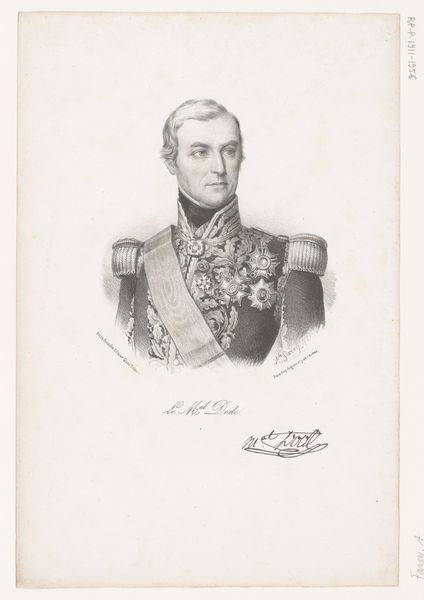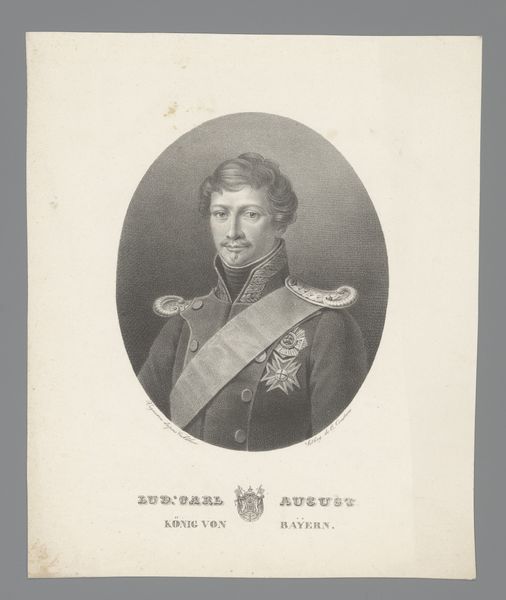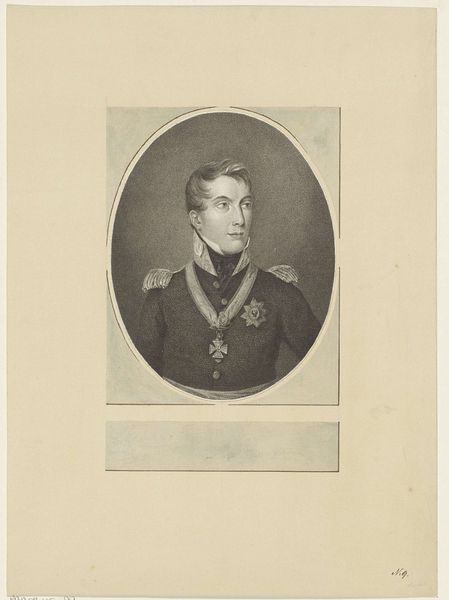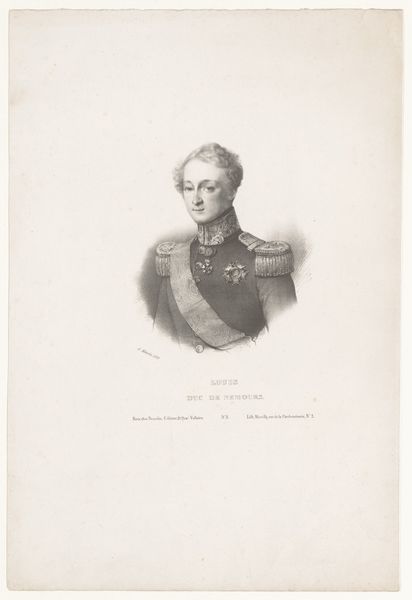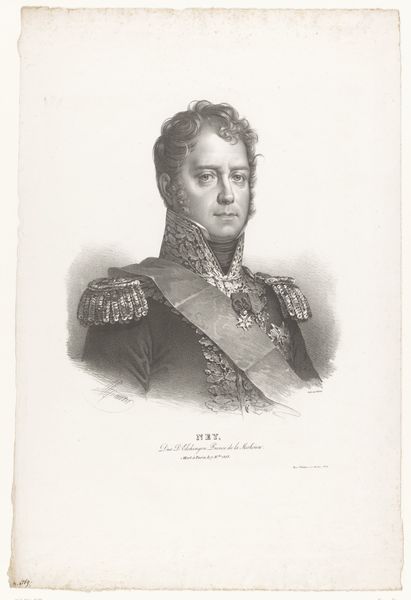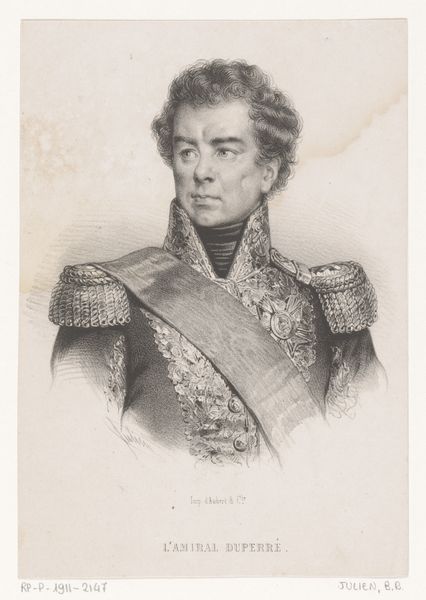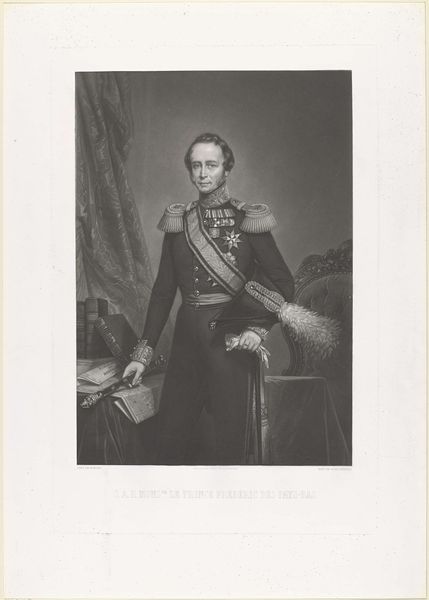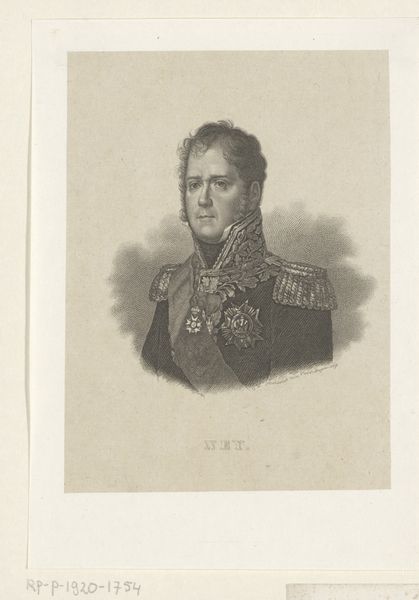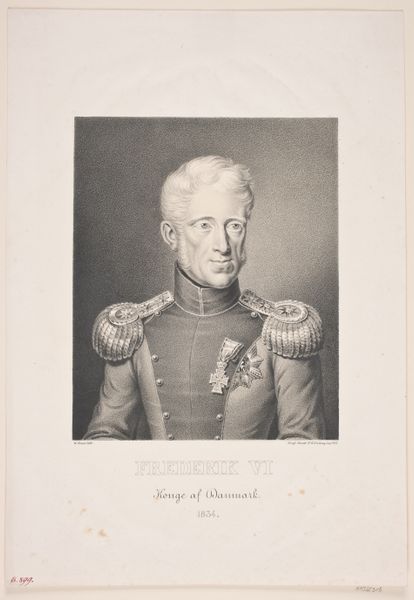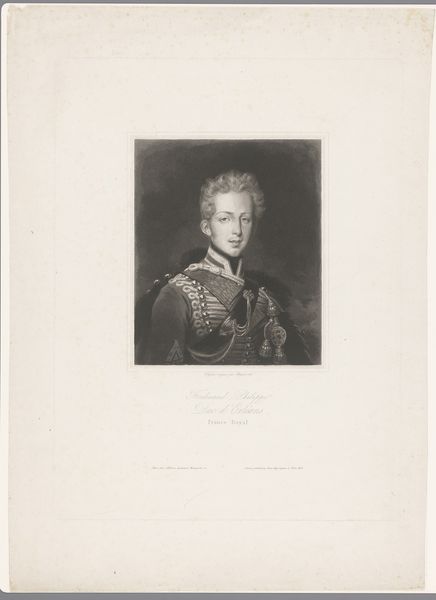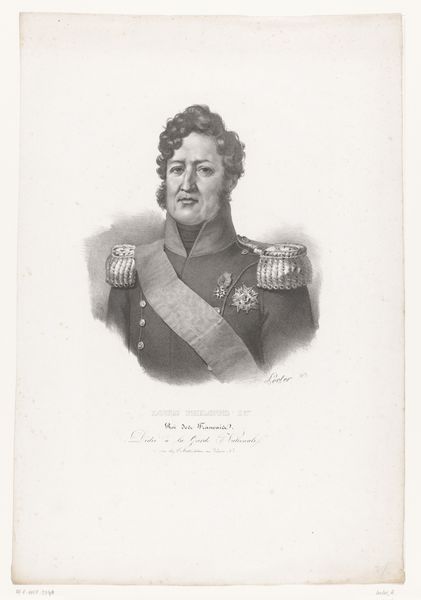
print, engraving
#
portrait
#
neoclacissism
# print
#
history-painting
#
engraving
Dimensions: height 531 mm, width 376 mm
Copyright: Rijks Museum: Open Domain
Editor: Here we have a print from 1825, "Portret van Karel X van Frankrijk" by Nicolas Henri Jacob, an engraving currently held at the Rijksmuseum. There is an undeniable formality to it; can you share what you see in this representation? Curator: Well, immediately, the regalia jumps out. The symbols of power are laid out in very deliberate order. The sash, the medals, the epaulettes. It's a visual vocabulary of kingship. Ask yourself, what did these symbols mean to people at the time, just after the tumult of the French Revolution? And what do they evoke now? Editor: So it is really a question of visual messaging then? The intention seems clear – projecting power and stability? Curator: Absolutely. The composition is incredibly deliberate. The slightly elevated perspective lends an air of authority, doesn’t it? And it asks us to consider what “authority” means in a post-revolution world. Charles X's legitimacy was not a given. How might these symbols reinforce his claim to the throne in the eyes of the French people? Consider it within the historical context. Editor: That's really interesting. So looking at the symbols as both historical artifacts but also psychological tools for constructing identity and reinforcing power... I'll certainly consider that. Thanks! Curator: Indeed! Seeing through those symbols helps us decipher the messages that past tries to communicate, and what they echo today.
Comments
No comments
Be the first to comment and join the conversation on the ultimate creative platform.
